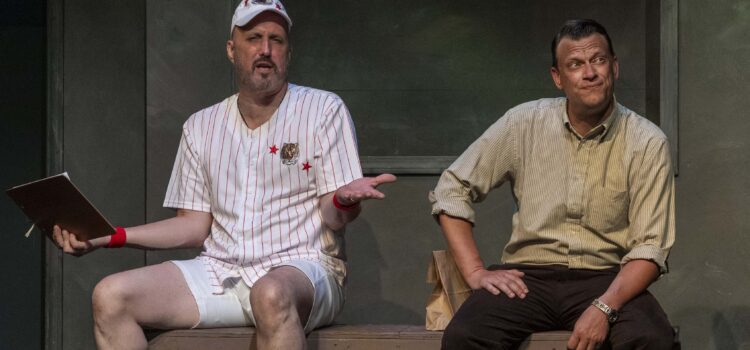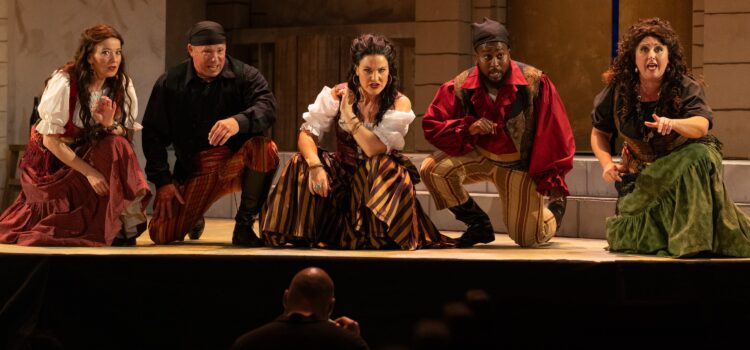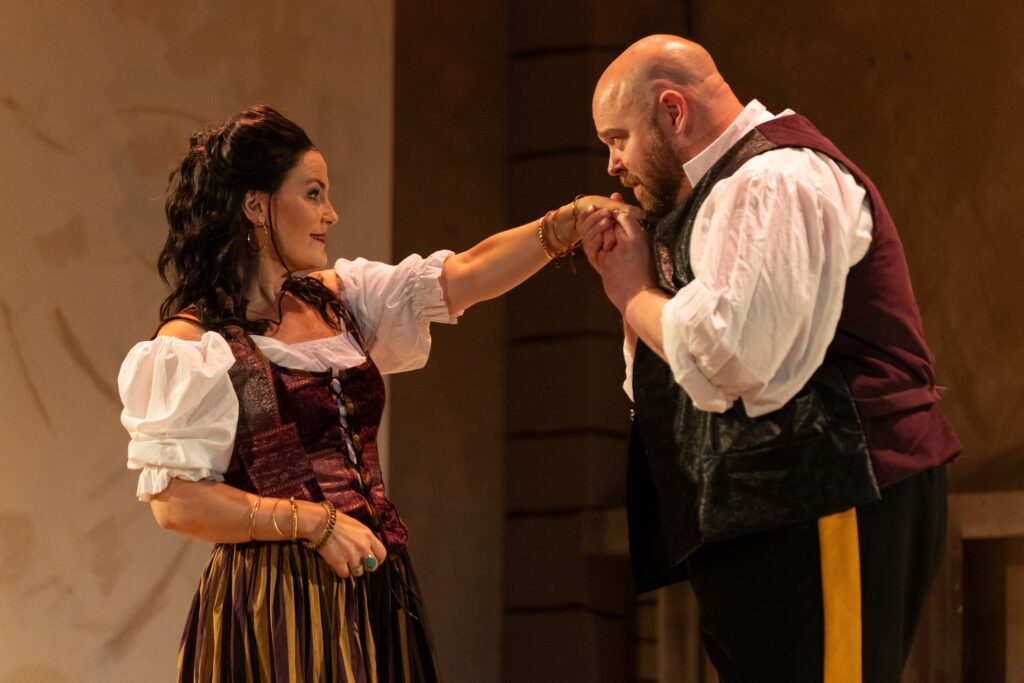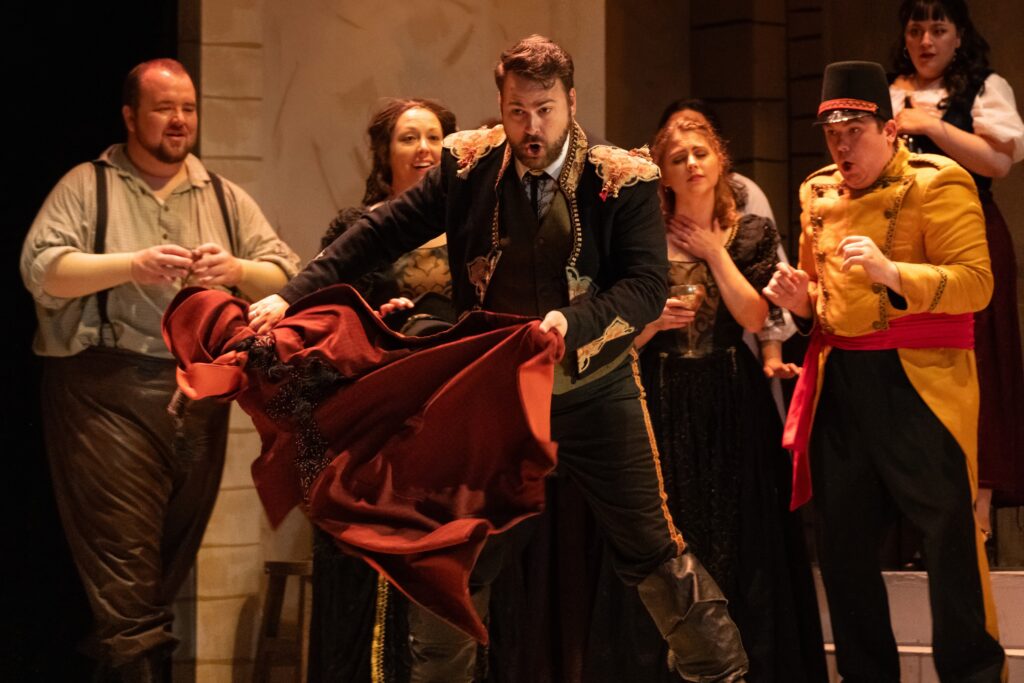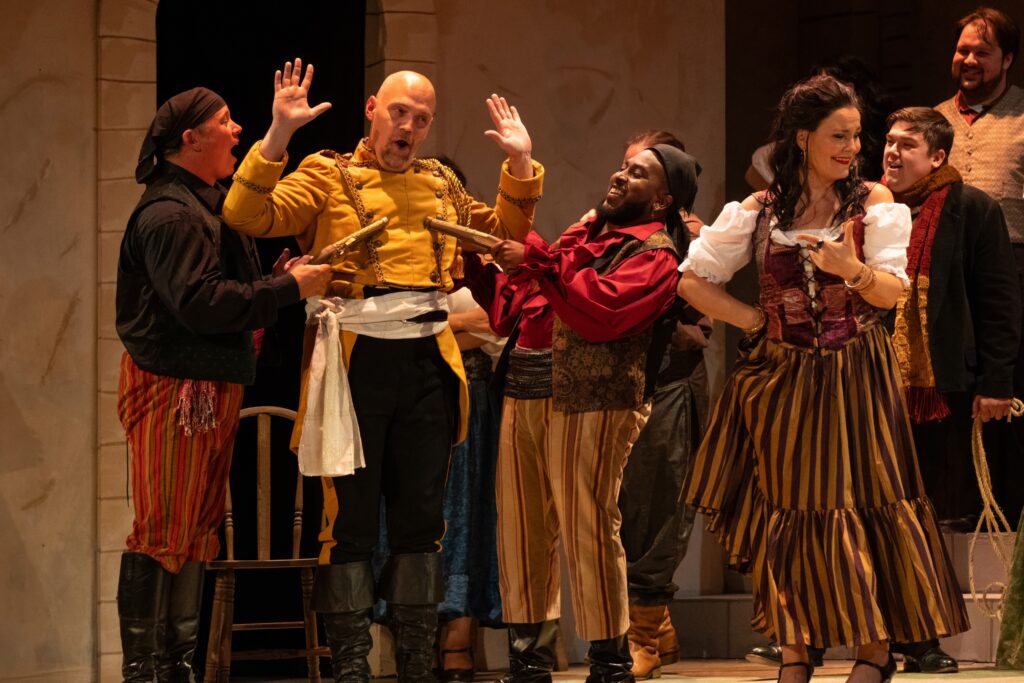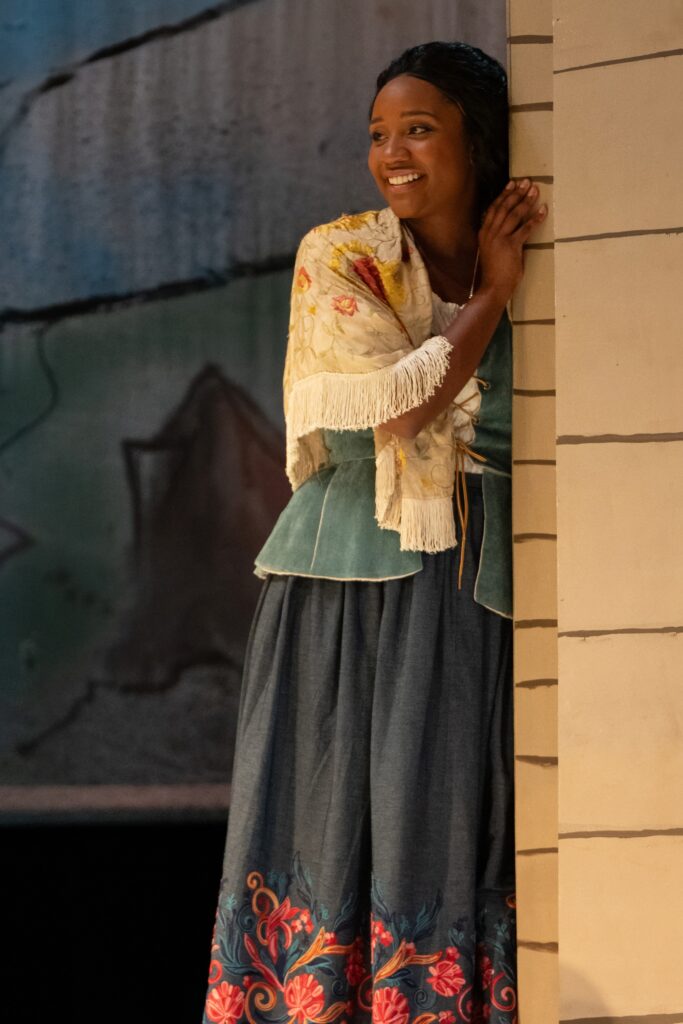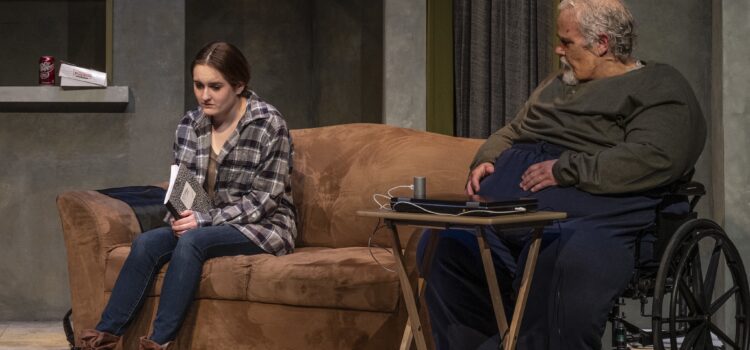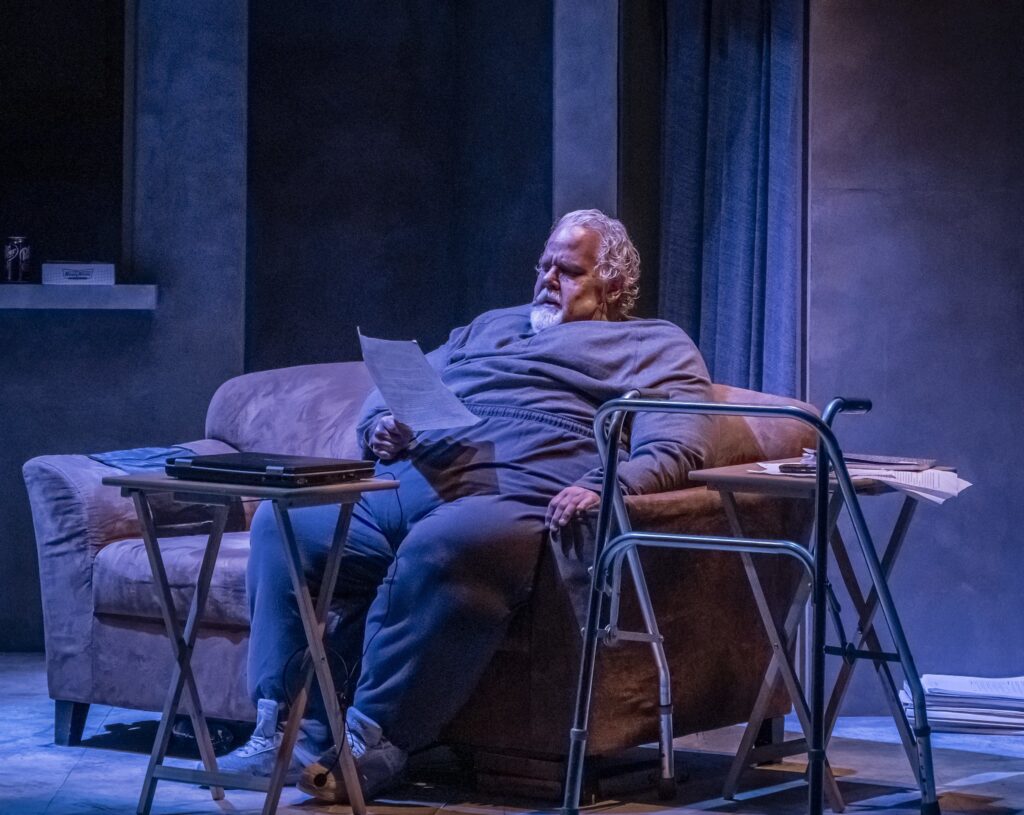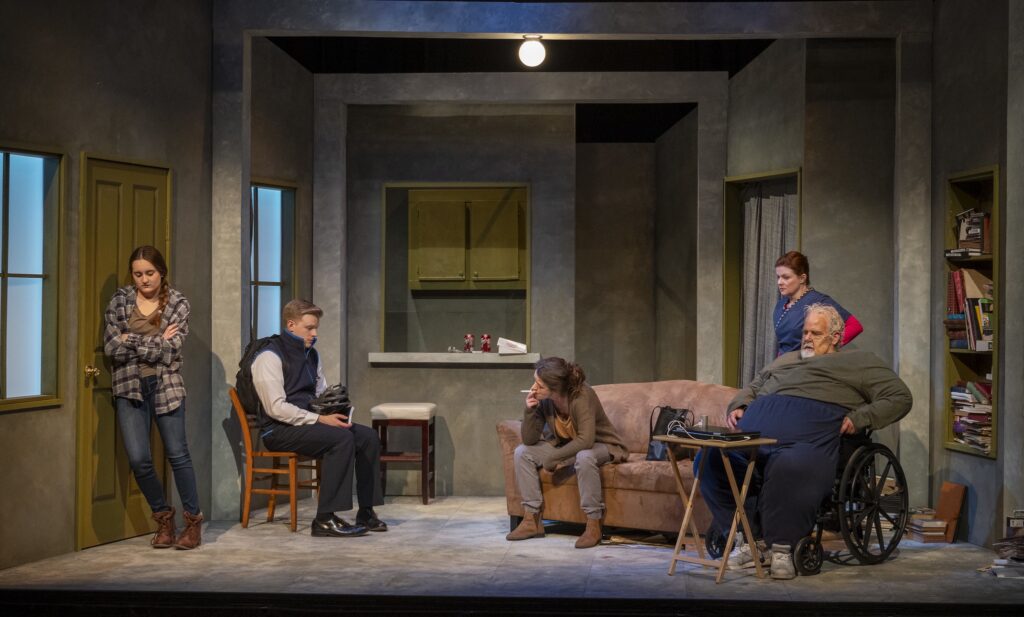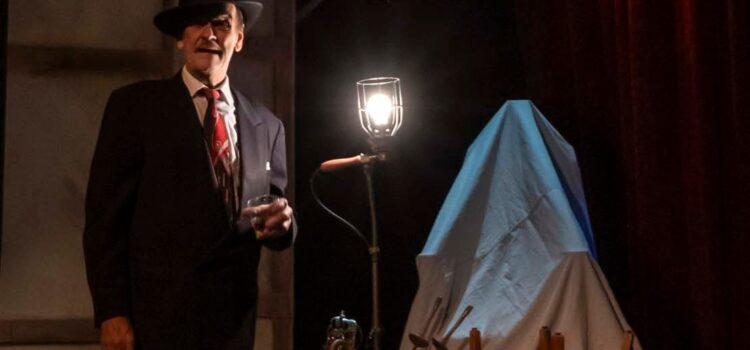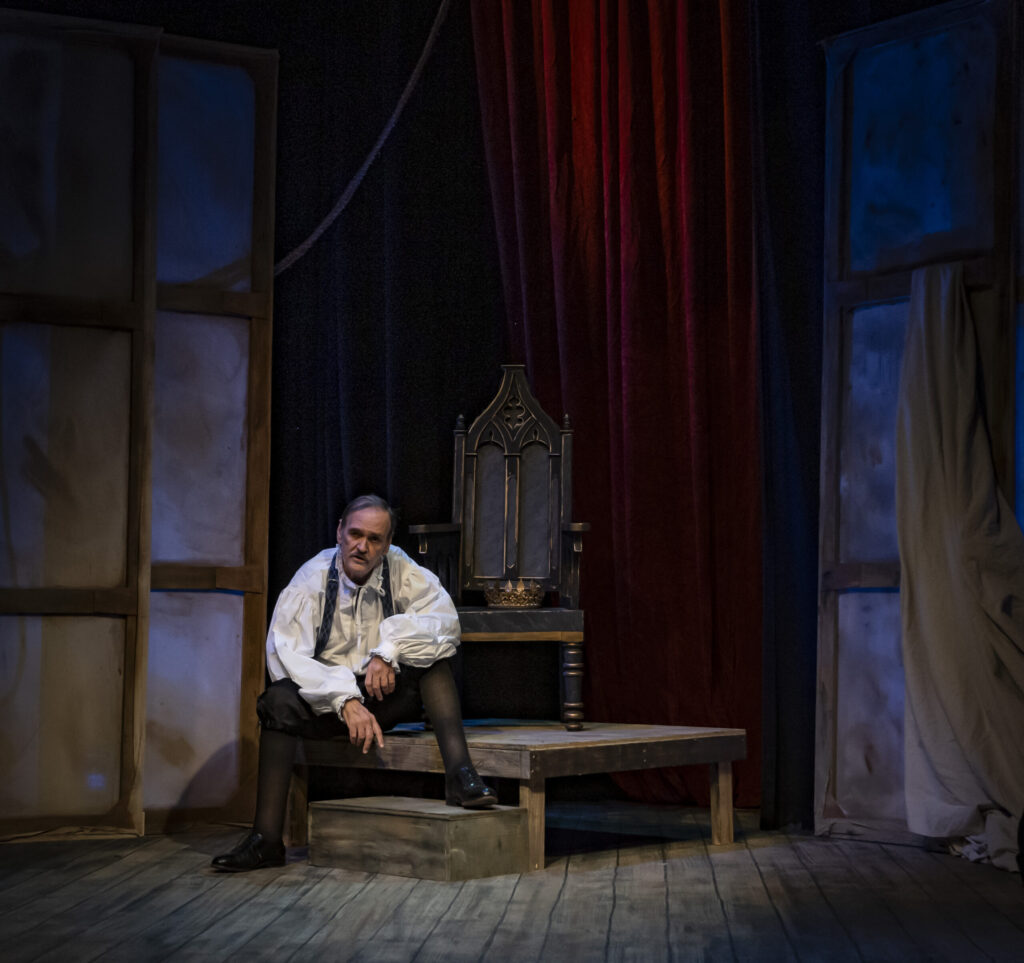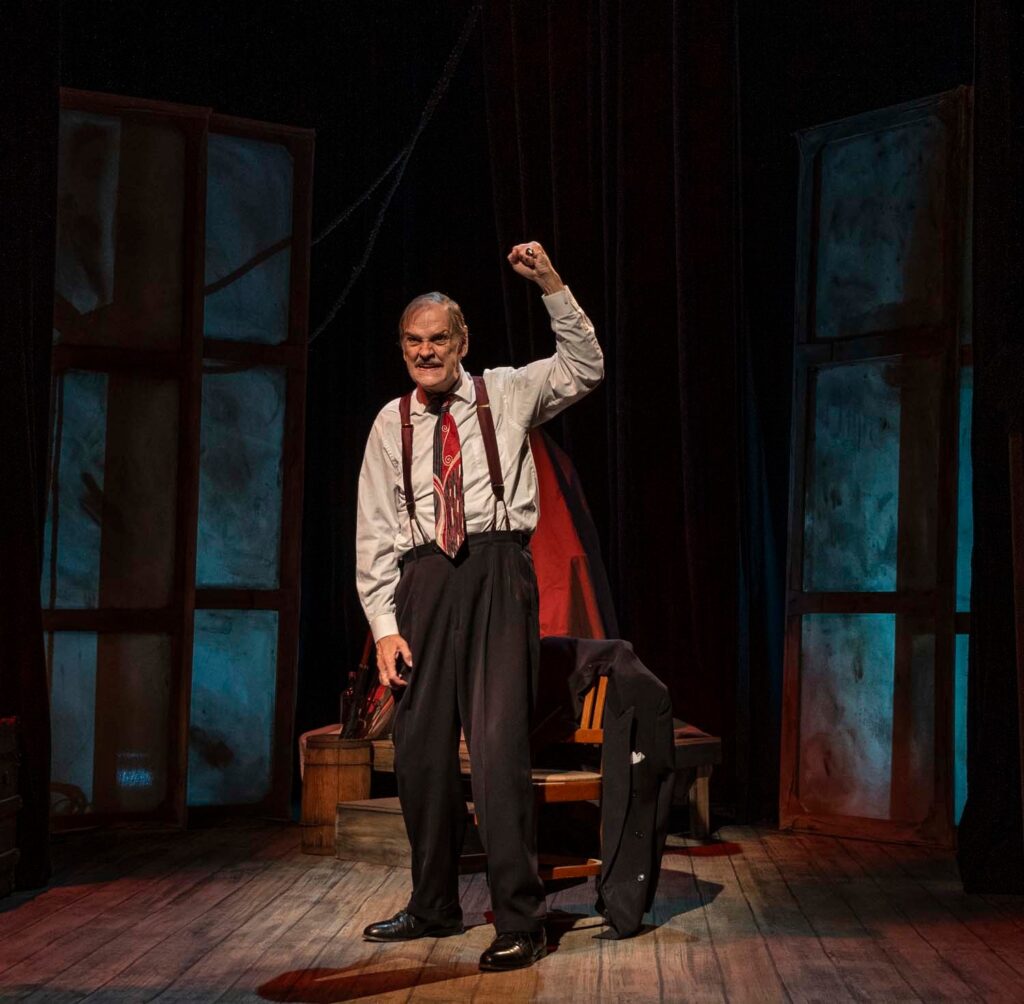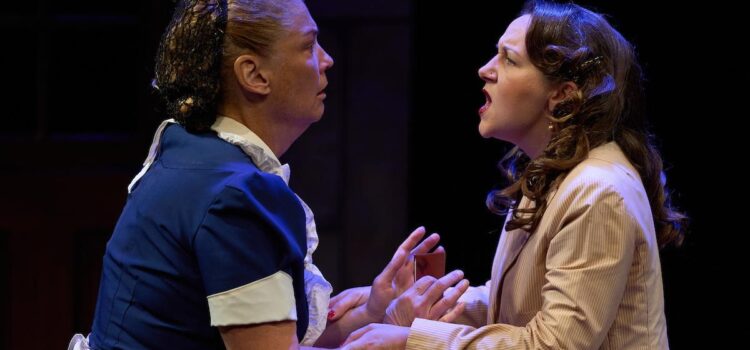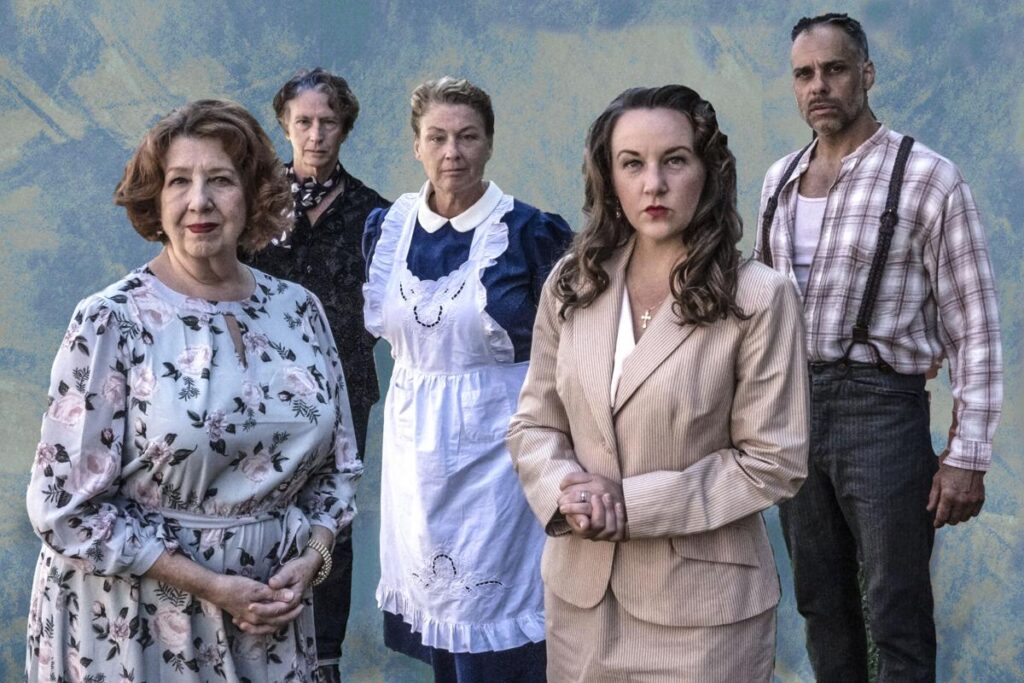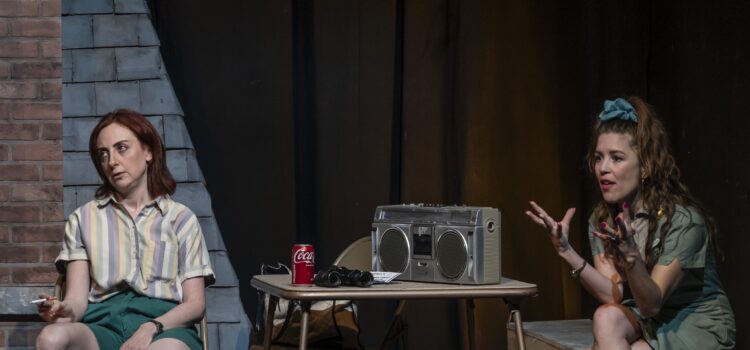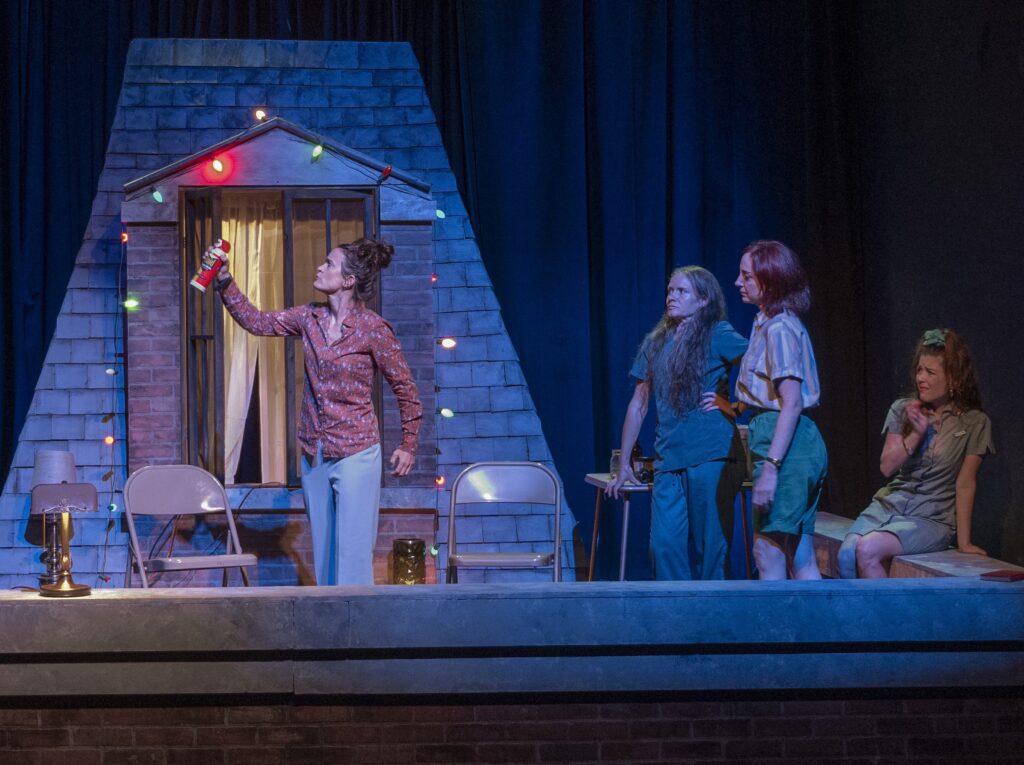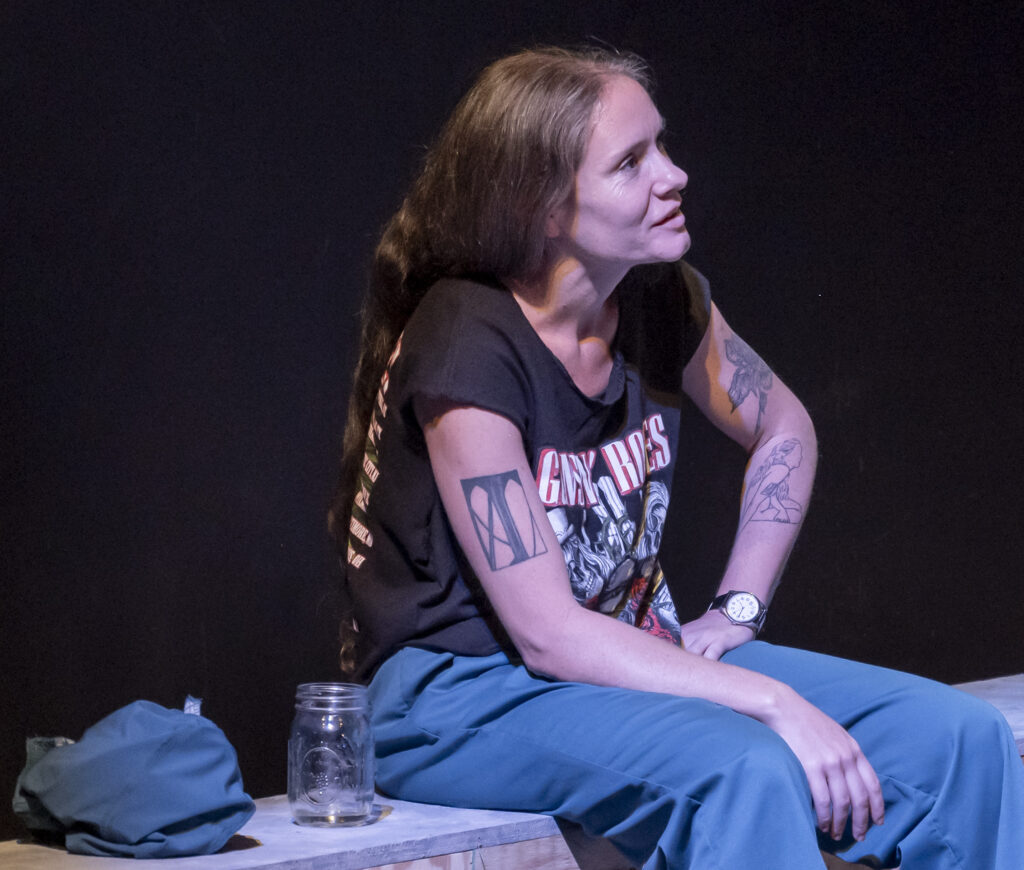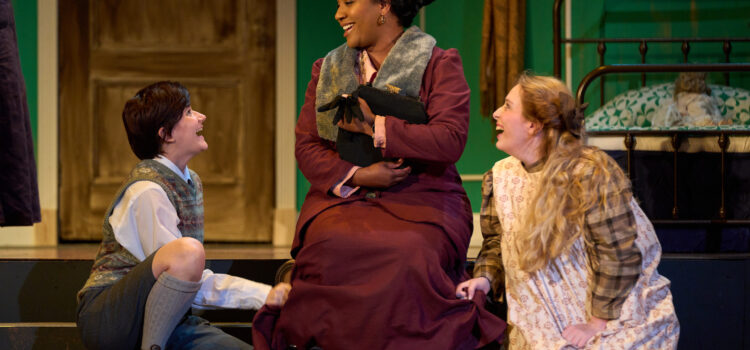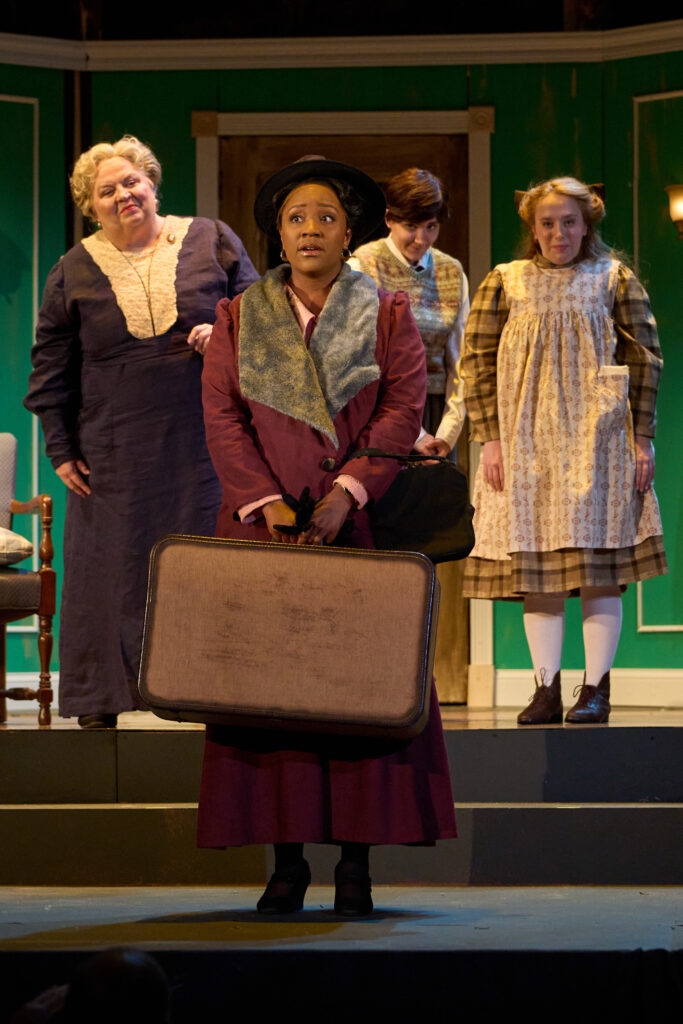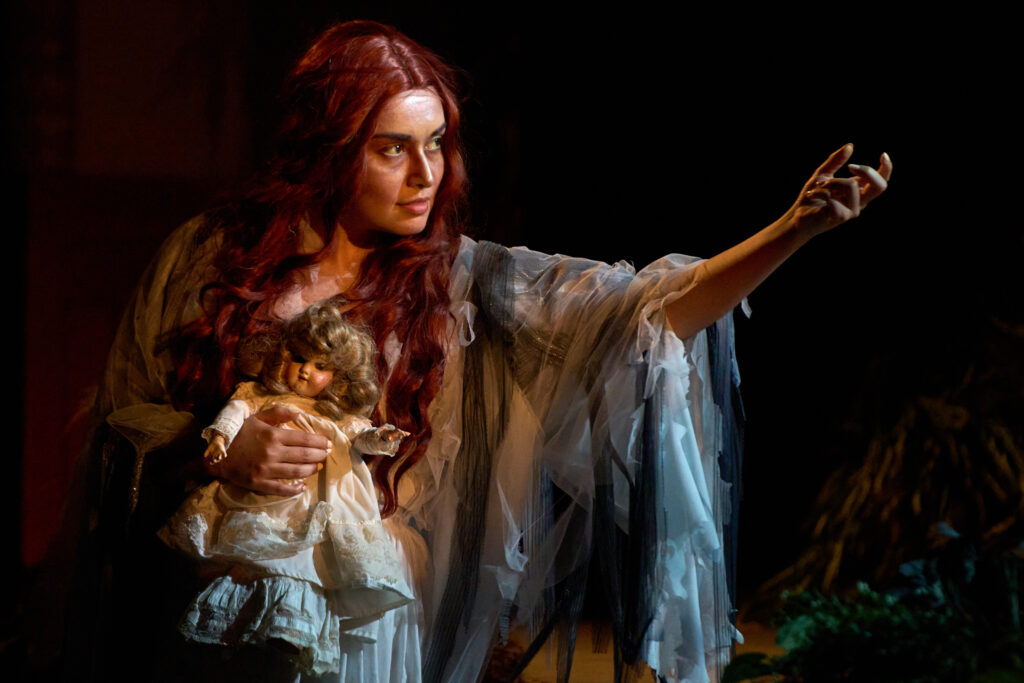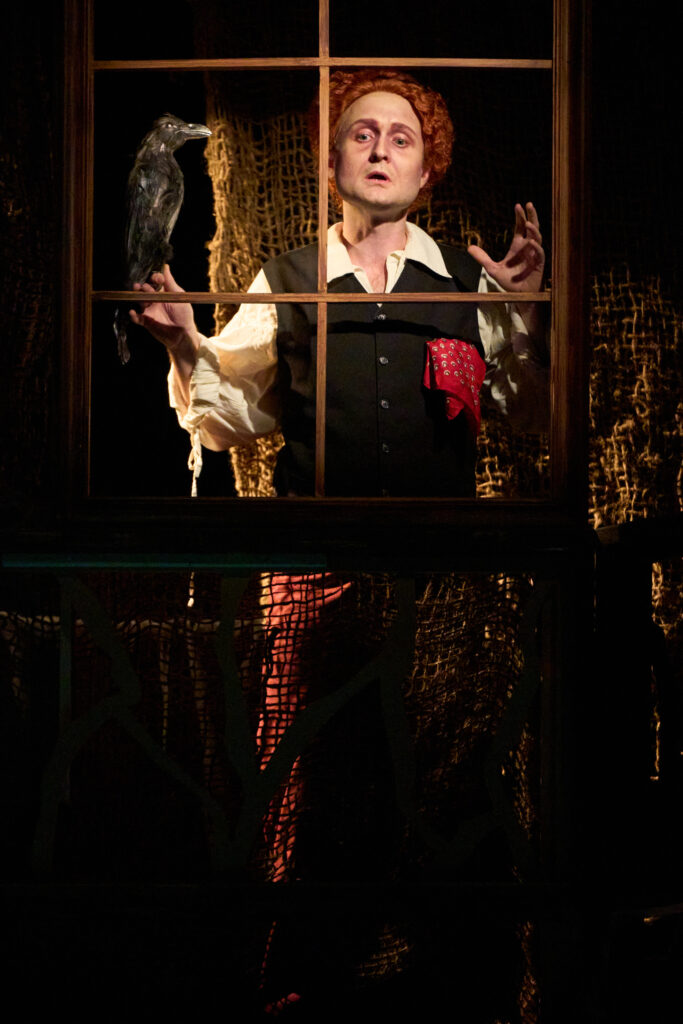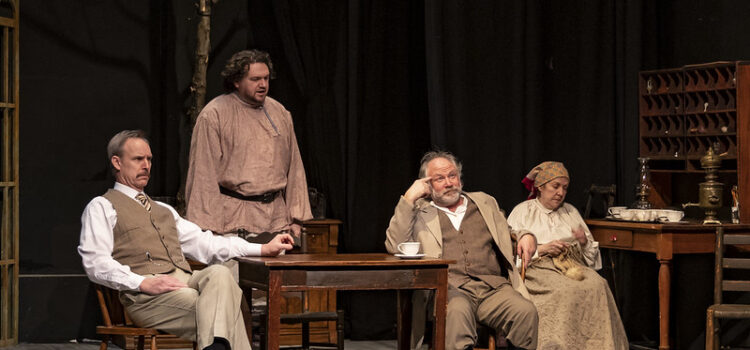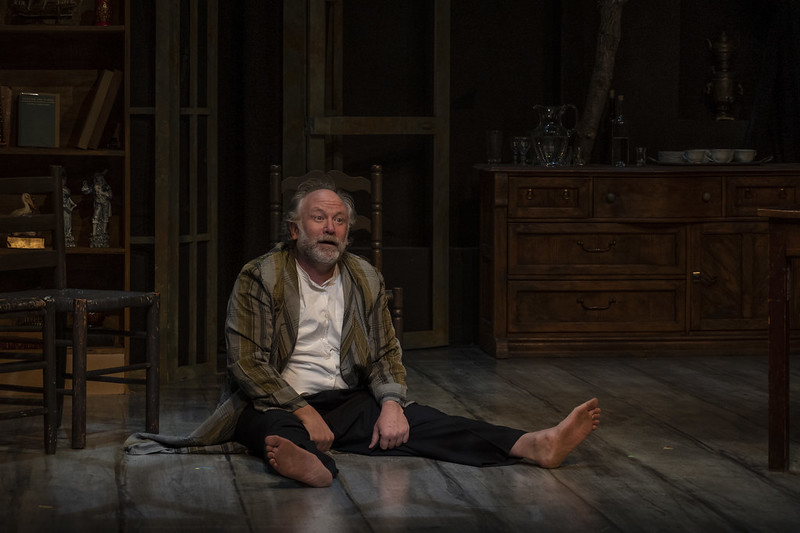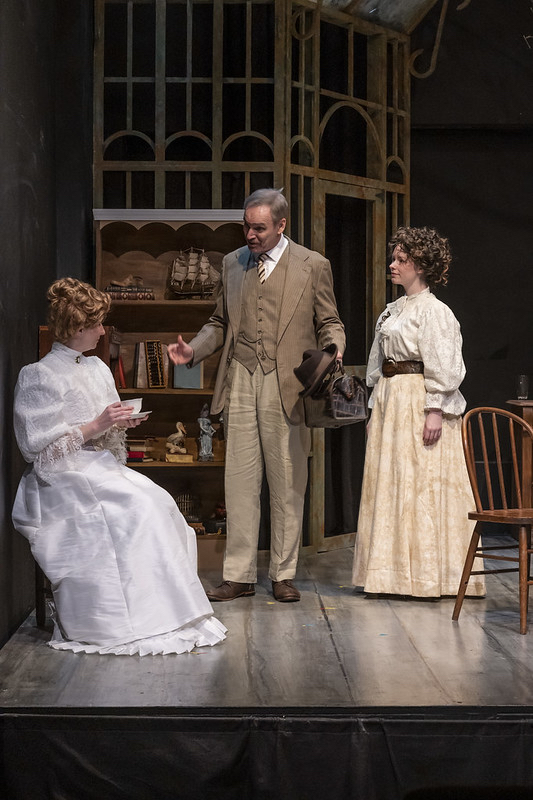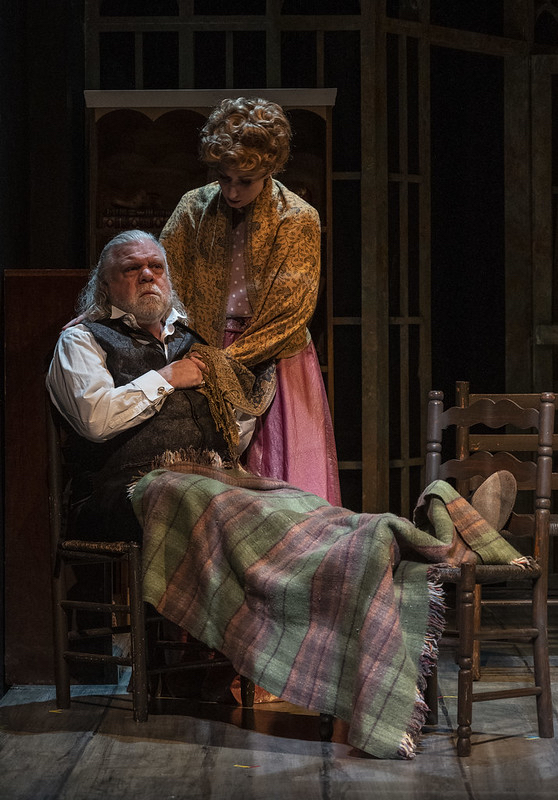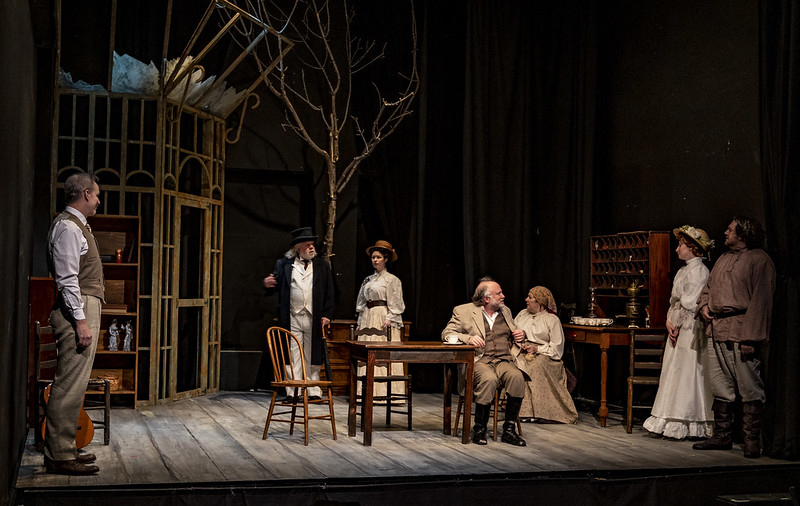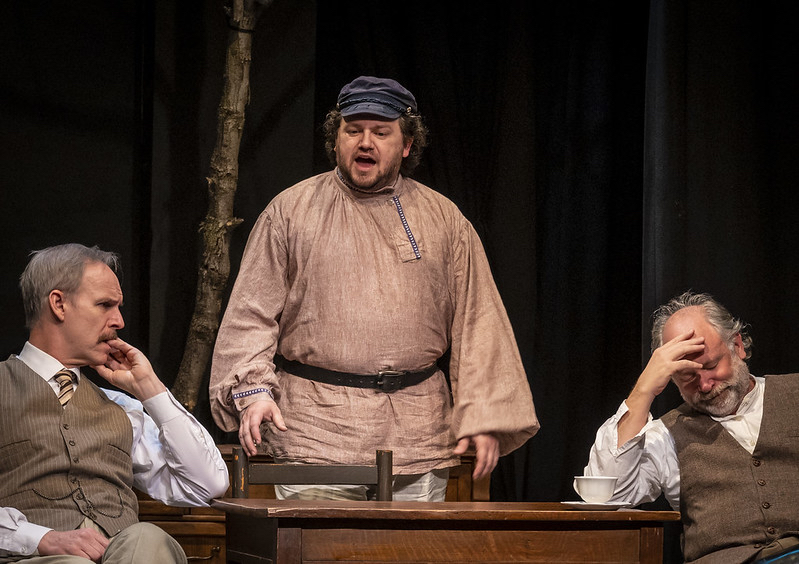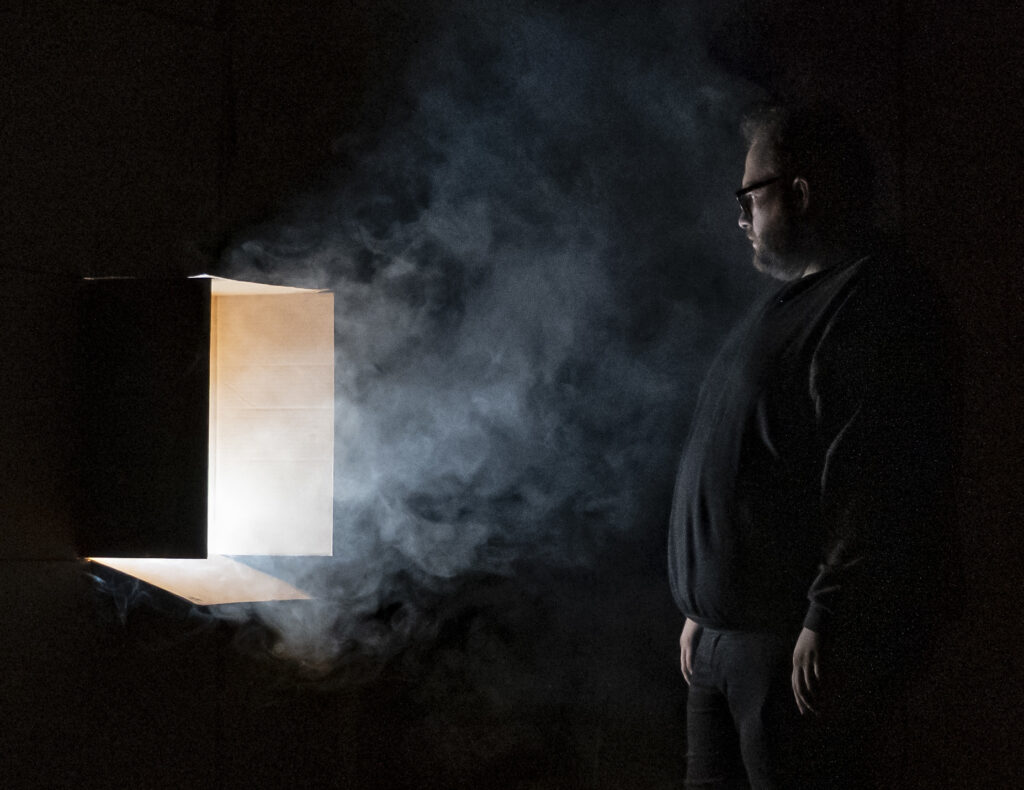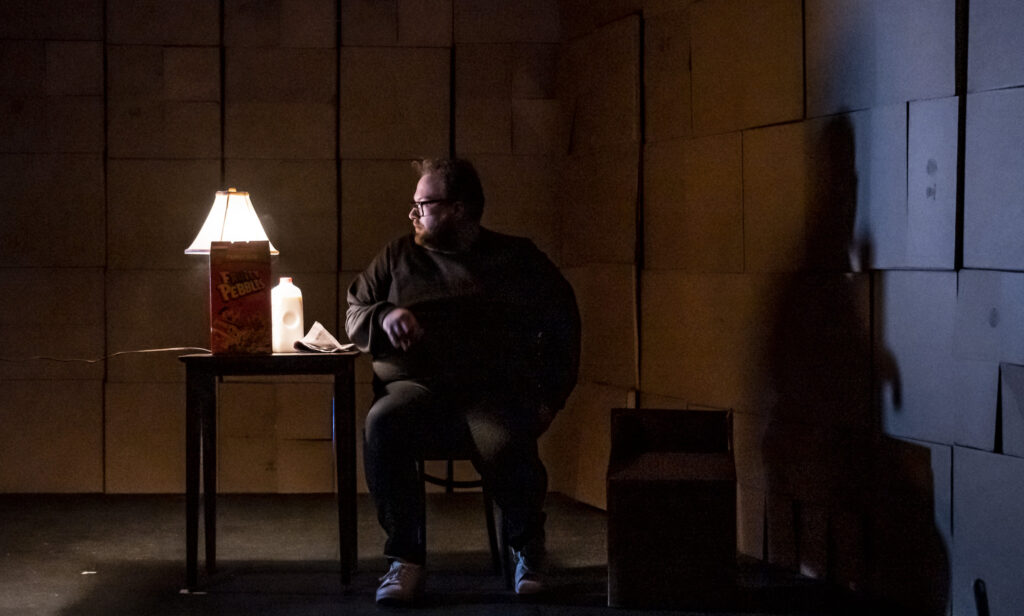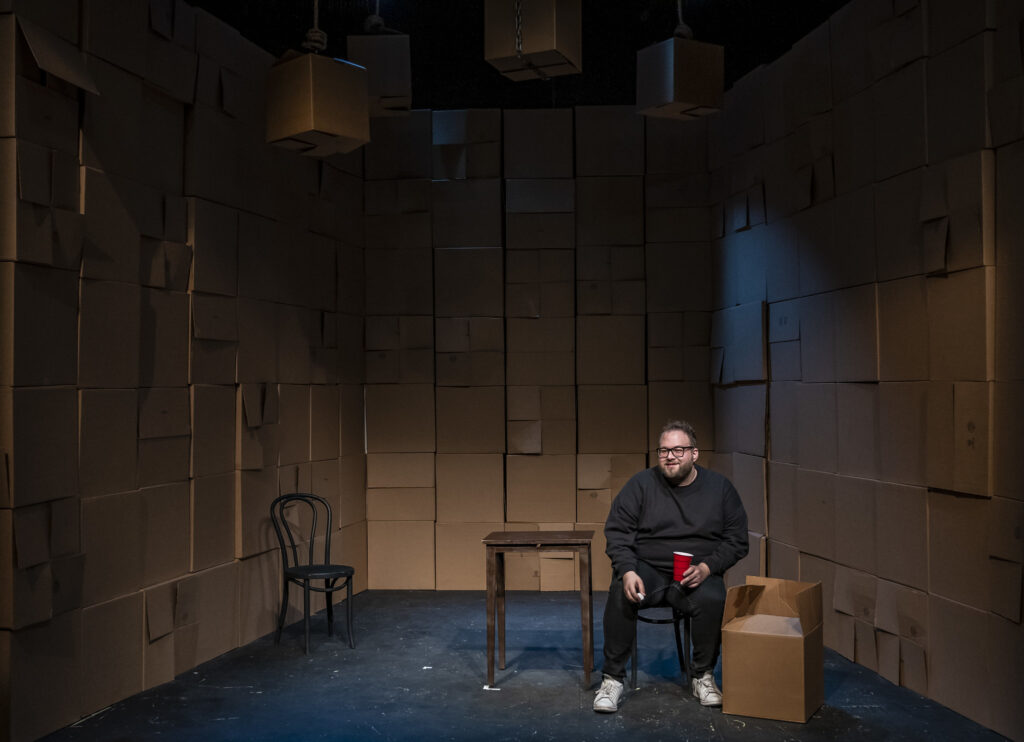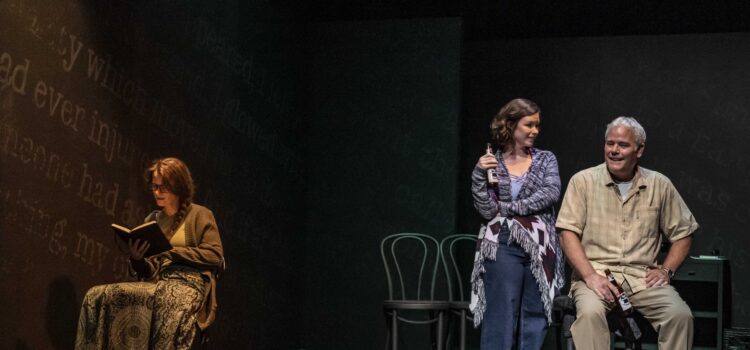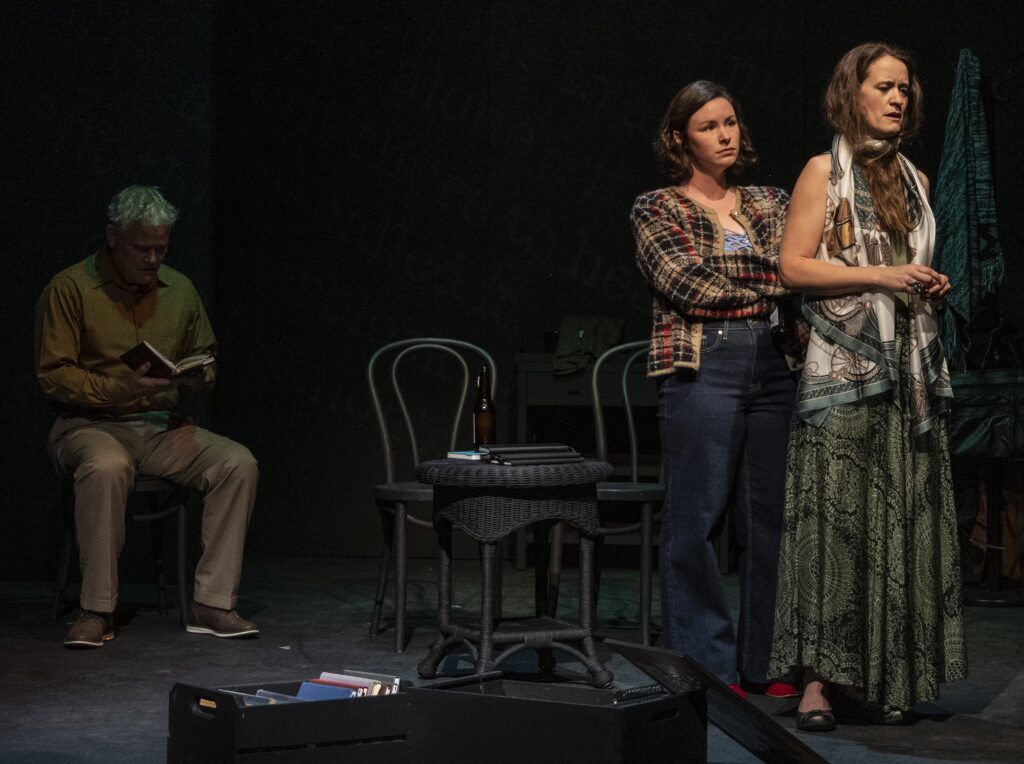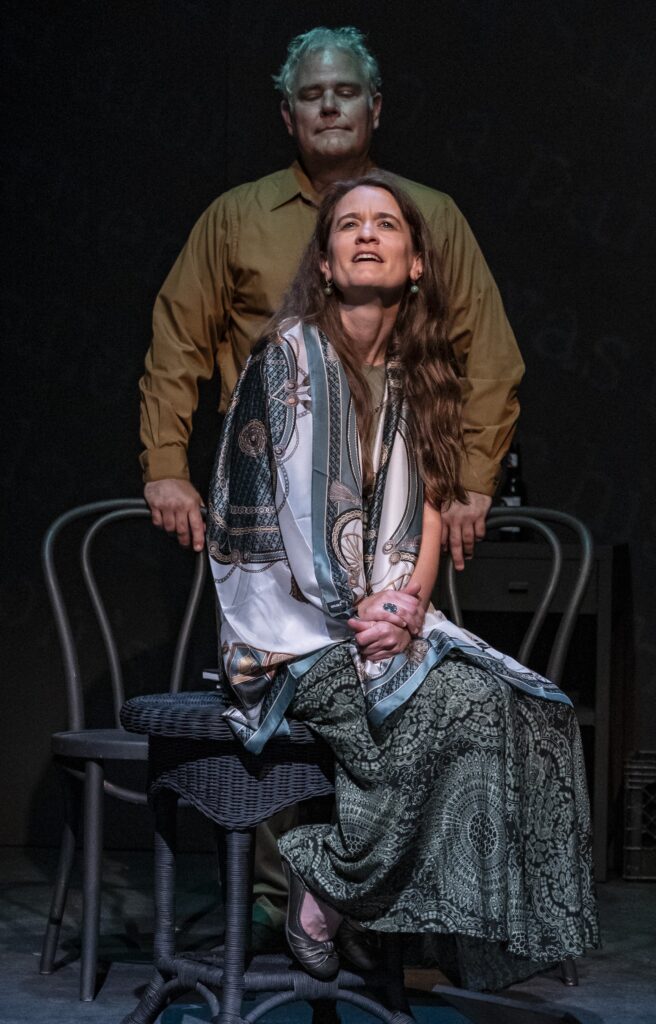By Lynn Venhaus
A walrus and a manatee walk into a polar bear’s bar that’s a comical rant. There is trouble in paradise between Adam, Eve, God and Satan. A mother and a daughter square off, a coach and a parent exchange words, and a married couple share their rocky heart-tugging journey.
A range from savvy farce to poignant drama, this year’s 10th annual LaBute New Theater Festival’s line-up stresses shared humanity in five strong complete-thought one-act plays that press different emotional buttons.
Every year since 2013 – when live theater could be presented, St. Louis Actors’ Studio has collaborated with playwright, screenwriter and film and theater director Neil LaBute to support new works from across the country.
LaBute not only lends his name, but he is part of a 10-member panel that selects the plays from a vast number of submissions, often emerging voices. The company provides the resources for local presentations.
In years’ past, selections have included some edgier and esoteric works, but this current slate is as relatable as it is affecting – and still in a thought-provoking way.
However, typical topics like politics, the state of the world or a dystopian future are not on this roster.
It may not be intentional, but I detected a unifying theme between the five — wrestling with demons and doubts, and addressing elephants in the room, all in compelling contemporary presentations. After all, there is more commonality than differences among us, as the arts frequently point out.
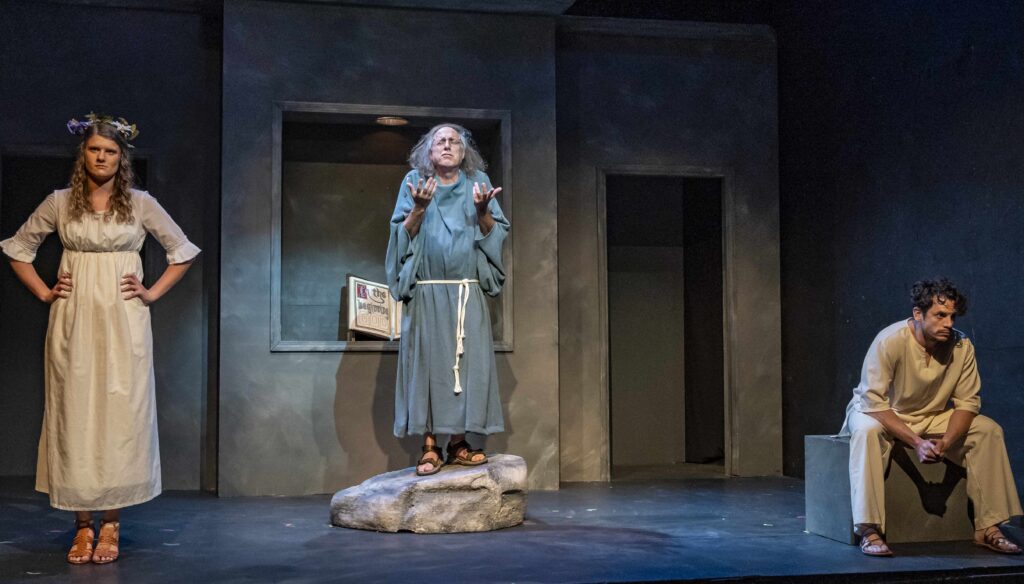
All five are particularly suited for The Gaslight Theatre’s black box stage intimacy, and in keeping with the festival’s rules, plays can only have up to four characters.
LaBute contributes a world premiere one-act every year. This year’s original presents a view askew of sports at young levels. Although not specified, I surmised it was a summer squad aka “Little Leagues” or those between school leagues, like American Legion and ‘select’ teams.
Called “Who’s on First?”, this uncomfortable exchange between a baseball coach and the parent of a player whose skills are lacking is entirely plausible.
A rueful commentary on how we got here, LaBute’s razor-sharp rhythmic dialogue is superbly delivered by Chuck Winning as the coach (Abbott!) and Anthony Wininger (Costello!) as the father.
As they painstakingly reveal motivations, they re-affirm the present-day stakes matter-of-factly. The scene, which opens the second act after a 15-minute intermission, takes place in a dugout, and is shrewdly directed by Kristi Gunther, the current production manager at St. Louis Actors’ Studio.
She and Spencer Sickmann, a veteran performer who took a couple years off for a personal-life break, has returned to tag-team directing this program.
Previously, he had acted in two earlier new theater festivals, and in leading roles in LaBute’s “Comfort,” St. Louis native Beau Willimon’s “Farragut North,” and St. Louisan Cory Finley’s “The Feast,” among others.
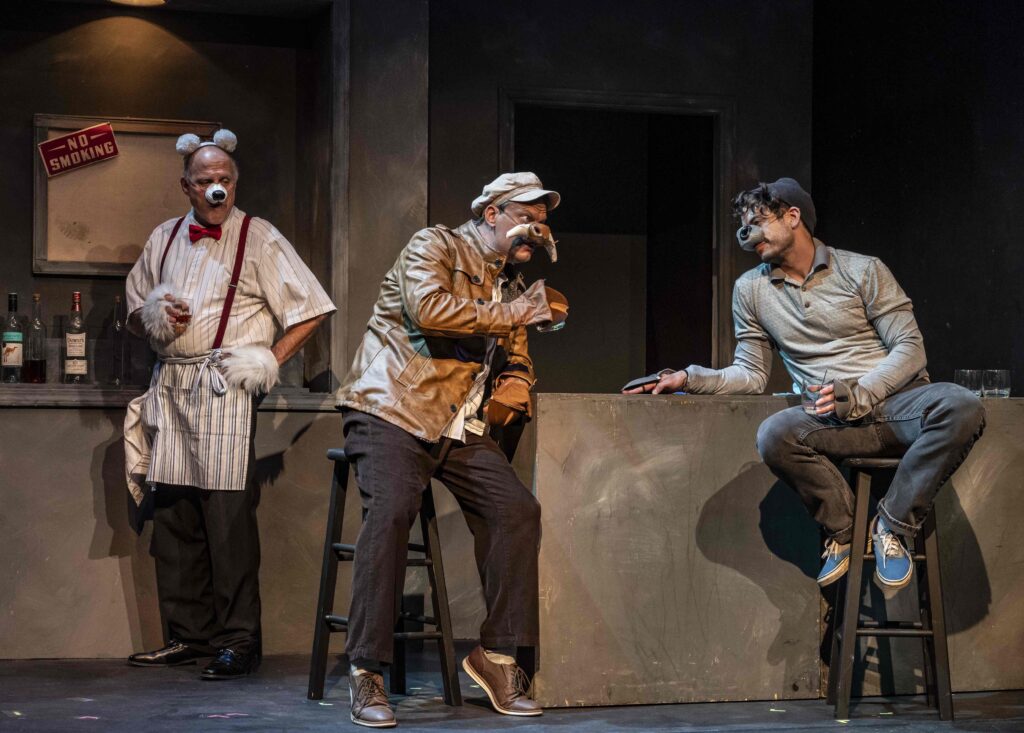
Gunther assuredly guided two conflict pieces – a wacky one that escalated, called “Walrus,” and a somber two-hander that came to a resolution, in “Cage.”
Sickmann perceptively helmed the opening kick-off, a bracing battle of the sexes featuring a fractured relationship between the first man and first wife, Adam and Eve. Quick-witted dialogue by playwright Paul Bowman of New Albany, Ind., makes “Grief & Woe” an interestingly observed relationship study, interrupted by God’s rules and Lucifer’s interference.
The Garden of Eden resembles a battleground like “Men are from Mars; Women are from Venus.” The not-so-happy bickering couple is tested by a seductive, slithery serpent, ‘just call me Lou,’ played slyly by Winning, affecting a devil-may-care attitude and dominating the stage.
A benevolent but exasperated “Mr. G” is humorously fleshed out by Greg Hunsaker as a cross between a Borscht Belt comedian – think “Your Show of Shows” sketch – and a ‘60s sitcom boss.
It’s a clever albeit lighthearted scenario, with impressive new-to-Gaslight-stage Tyler Crandall as an inattentive Adam and Lorelei Frank as a frustrated Eve
The festival is usually modestly presented, with simple, functional staging by set designer Patrick Huber, who also astutely augments each scene as lighting designer. With distinctive outfits and props, production values are elevated this year by costume designer Abby Pastorello’s outstanding choices and Emma Glose’s props.
Pastorello’s slick attire for Winning as “Lou” is a sensational assortment of pieces including a shiny carnival barker’s jacket, brocade vest, lime green shoes and a gold-plated leaf barrette for his deceptive wig.
To easily alter appearances of actors comically portraying North Pole wildlife in the act-one closer, “Walrus,” she chose whimsical noses, ears and ‘hands’ so that it’s obvious Wininger is an obnoxious blowhard walrus, Crandall is the more agreeable, timid manatee and Hunsaker is the no-nonsense proprietor of the drinking establishment where they regale each other with tales of life in arctic waters.
Gunther directed as if they could be super-fans knocking back a drink in a Chicago sports bar, and the trio has fun with the goofy premise. The cagey play was written by Brandt Adams of Brooklyn, N.Y.
A complicated relationship between a mother and daughter is depicted in an argumentative “Cage” by Barbara Blatner of New York. The pair, deftly played by Jane Paradise (Bobby) and Frank (George), must consider the other person’s pain and come to an understanding.
Using the miserable girl bringing home a wild snake as a pet, it’s a metaphor about the things that hold us back and move us forward, and the women strike the right tone.
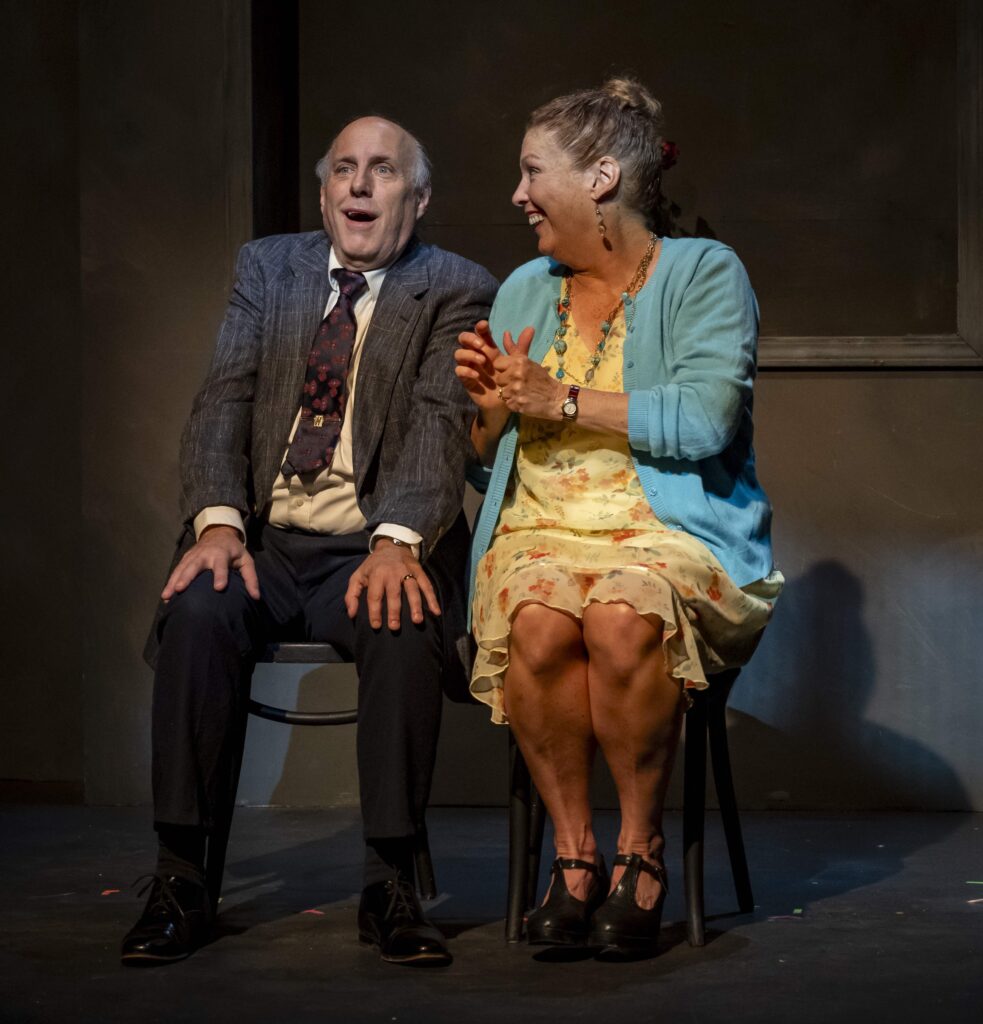
In one of the saddest and hardest-hitting one-acts ever presented, “Love in the Time of Nothing” chronicles a marriage from courtship through loss, as a couple grapples with the husband’s early-onset Alzheimer’s Disease.
Playwright Jayne Hannah of North Providence, R.I., accurately reflects the rollercoaster life after a dementia diagnosis changes everything for a husband in his 50s and a wife in her 40s.
If you have family experience with this disease, you will recognize all the symptoms, treatments, roadblocks, and the heartbreaking decline of a once-vibrant mind and the unrelenting burden placed on caretakers.
Hunsaker, as David, and Paradise, as Julieanna, masterfully interpret Hannah’s literate and lyrical prose, conveying the ecstasy and agony of a serious commitment.
These parts are demanding of the actors, and their proficiency makes an impact. This one lingers, and it was a wise choice for the finale. Sickmann presents both the hope of good times and the tragic realization of never-ending sad times with inevitable anguish.
This year’s festival is smoothly executed, intellectually nourishing and engaging in unexpected ways. The best part, besides being a splendid showcase for high-caliber performers, is that it surprises with its empathy.
The needle drops are particularly affecting, so kudos to whoever selected the music. Pastorello also effectively managed wigs, hair and makeup.
Special shout-outs to stage manager Amy J. Paige and her assistant Collin Brinkley for their unflagging efforts to keeping the pace from sagging, and their ninja staff for quick set changes.
To celebrate a decade of this fruitful collaboration, STLAS has published a book, “Unlikely Japan and Other Plays: Ten One-Acts from Ten Years of the LaBute New Theater Festival,” that features ten pieces by LaBute that were created and staged exclusively by STLAS at The Gaslight, 59E59 Street and Davenport Theaters.
The book is currently available on Amazon and can be ordered directly from St. Louis Actors’ Studio. It is also available at the box office during this show’s run.
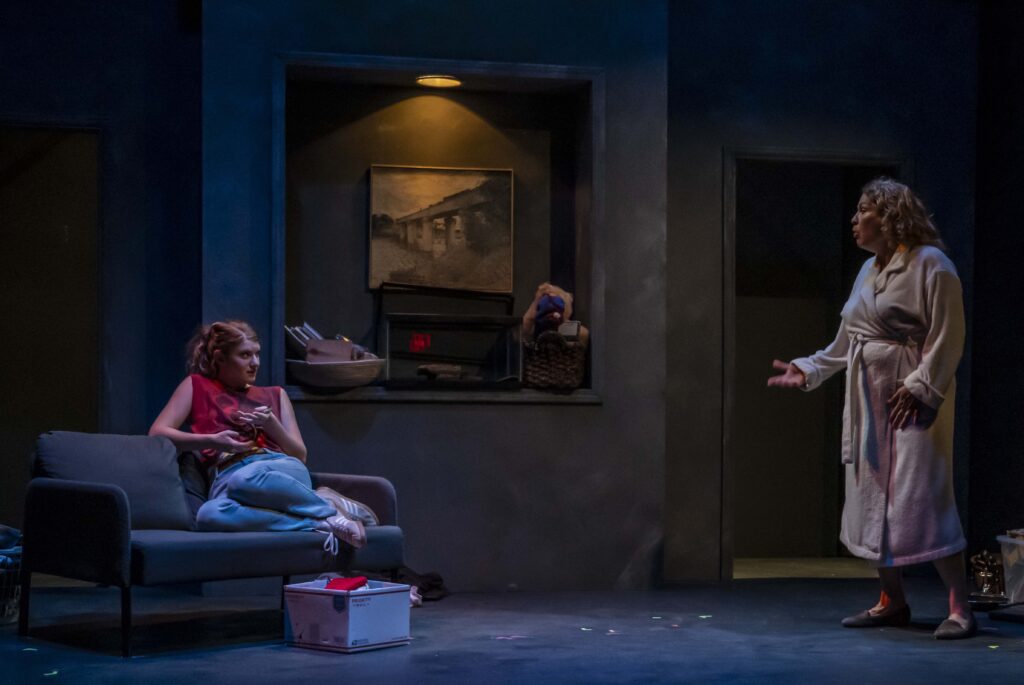
St. Louis Actors’ Studio presents the 10th annual LaBute New Theater Festival July 12 to 28, with performances at 8 p.m. Thursday through Saturday and at 3 p.m. on Sundays for July 18-21 and July 25-28, but only Friday-Sunday July 12-14 at The Gaslight Theater on North Boyle in the Central West End. For more information: www.stlas.org
General admission tickets are available via Ticketmaster or at the theater box office one hour before show time. For more information, visit stlas.org or email help@stlas.org.
A playwright reception will be held on July 19 to celebrate the artists’ work, giving patrons an opportunity to learn and understand the stories they’ve just digested.

Lynn (Zipfel) Venhaus has had a continuous byline in St. Louis metro region publications since 1978. She writes features and news for Belleville News-Democrat and contributes to St. Louis magazine and other publications.
She is a Rotten Tomatoes-approved film critic, currently reviews films for Webster-Kirkwood Times and KTRS Radio, covers entertainment for PopLifeSTL.com and co-hosts podcast PopLifeSTL.com…Presents.
She is a member of Critics Choice Association, where she serves on the women’s and marketing committees; Alliance of Women Film Journalists; and on the board of the St. Louis Film Critics Association. She is a founding and board member of the St. Louis Theater Circle.
She is retired from teaching journalism/media as an adjunct college instructor.

